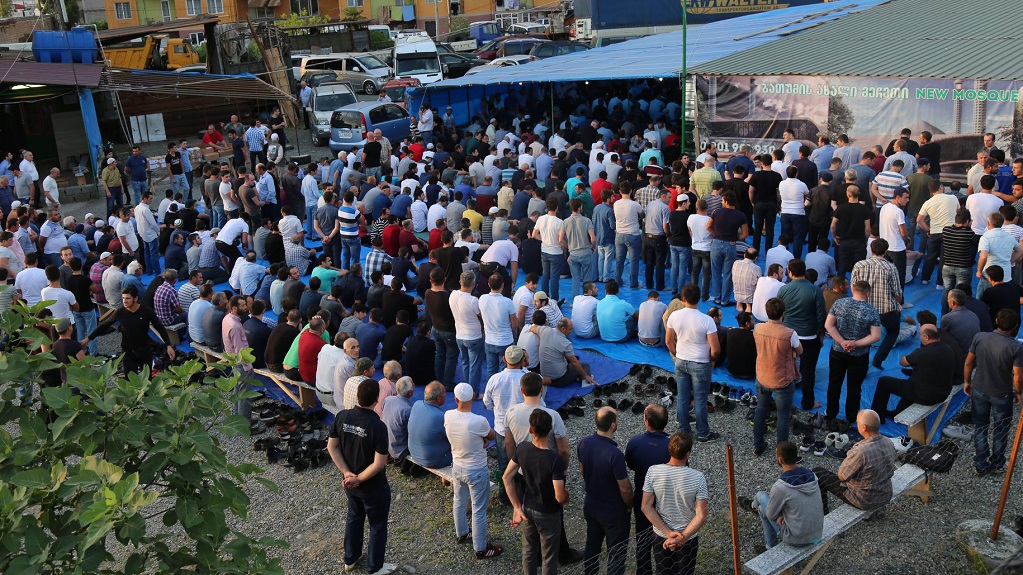The Supreme Court of Georgia annulled the ruling of the Kutaisi Court of Appeal, which established discrimination against the Muslim community on the part of the Batumi City Hall in the case of the construction of a new mosque in Batumi and returned the case to the same court for reconsideration.
News
The Chamber of Administrative Cases of the Supreme Court, composed of judges - Maia Vachnadze, Ketevan Tsintsadze, and Bidzina Sturua, reviewed the cassation appeals of the “Batumi New Mosque Construction Fund” and Batumi City Hall for two years. The parties appealed against the judgment of the Court of Appeal of April 13, 2021, according to which the City Hall's refusal to issue the first stage of a permit for the construction of a new mosque in Batumi was illegal and constituted discriminatory treatment of the claimants on the basis of religion.
There are 7 orthodox churches in the area where the Muslim community is requesting permission to build the mosque, 3 of them are built on a registered plot of land owned by Batumi Municipality. The court of appeals overturned the City Hall's refusal but denied the Muslims' request to directly order the City Hall to grant the first stage of the building permit right away instead of remanding the case for a new trial. The Muslim community appealed the decision of the Court of Appeal in this part.
The Supreme Court partially satisfied the cassation appeal. It shared the argument of the “Batumi New Mosque Construction Fund” that since the Court of Appeals established discrimination, it should essentially have decided the matter finally and eliminated the result of the discrimination and not return the case to the City Hall. However, the Supreme Court did not order the City Hall to issue a construction permit but returned the case to the Court of Appeals for reconsideration.
The Supreme Court partially satisfied the cassation appeal of Batumi City Hall as well. In particular, the court explained that there has been no discrimination against Muslims because, in “residential zone 6” (the Zone in which the plot of land of the new mosque is located) of Batumi City Hall, permission for the construction of Orthodox temples was not issued, as they were built without permission.
The Supreme Court also discussed the part of the judgment of the Court of Appeals, in which the court gave priority to the interest of the construction of the mosque over the residential interest of the population living in the surrounding area. The Supreme Court instructed the Appellate Court to thoroughly assess and examine all the relevant circumstances and based on them, determine which interest is superior in the given case - the religious interest of the Muslims or the residential interest of the local residents.
In court, the interests of the Muslim community are protected by the Tolerance and Diversity Institute and Social Justice Center. According to them, the definitions of the Supreme Court regarding discrimination establish a malicious practice not only in terms of ensuring the rights of Muslims but in general, the principle of equality.
“For example, the court said that the Orthodox Church and Muslims are essentially equal, but no unequal treatment has taken place, because the Orthodox Church was never granted a zoning agreement to build a temple in residential zone 6, and the Church never applied to the mayor for such request.
With such reasoning, the Supreme Court completely removed from the case the context that only formal granting and not granting of a permit does not constitute discrimination, but on the one hand, requiring a construction permit from one association, while ignoring the construction without permission by another.
The court of cassation, without considering the context, called on the principle “there is no equality in illegality,” however, it did not discuss that this principle can be used by the state to legitimize discrimination, human rights organizations say.
The court dispute over the construction of a new mosque in Batumi has been ongoing for 7 years. During this time, Muslims have to gather and pray in the open air. Back in 2019, the Batumi City Court assessed the City Hall's refusal to allow the construction of the mosque as discriminatory and illegal.















